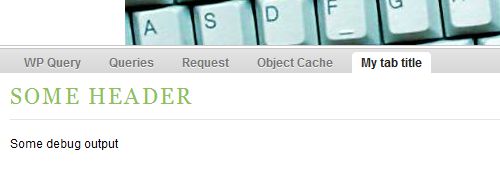I just released version 0.4 of my Smart Quotes WordPress plugin. It works with WordPress versions 3.4 and 3.5 now (guess I am a bit behind on these things).
You are currently browsing the archive for the WordPress Plugins category.
I have recently released my newest WordPress plugin to the public:
Smart Quotes should appeal to the international audience. E.g. if you’re a German writer and would like to use German book style quotation marks (»…«) even when you type so-called "dumb" quotes or use the <q> element: This plugin is for you!
Right now the plugin comes with shortcuts for Croatian/Hungarian/Polish/Romanian style quotation marks („…”), Czech or German style („…“), Danish (or German books) style (»…«), Finnish or Swedish style (”…”), French style (« … » – with spaces), Greek/Italian/Norwegian/Portuguese/Russian/Spanish/Swiss style («…» – without spaces), Japanese or Traditional Chinese style (「⋯」), but you’re free to manually enter/paste any arbitrary characters or character combinations.
Download “Smart Quotes” (.zip) now
After you’ve installed the plugin go to your Wrting Settings screen where you will find this:

Right now the plugin comes in English and with a German translation, but for “Smart Quotes” I’d be particularly interested in adding more languages. Contact me if you think you can help! The .POT file for this one is really small, so I’m thinking it could be a quick fix. – If you have never translated software before: this thread on Lester Chan’s Forums is a good start and it’s specific to WordPress plugins.
The next version 1.1 of my Open Graph Pro WordPress Plugin will feature an API (a public method and two filter hooks) that can be utilized by theme and plugin developers who would like to add “Like” buttons to their blogs. The API also allows you to add Custom Object Types.
If you want to test-run the API go to the Open Graph Pro download page and grab the Development Version. The API is not going to change anymore. The code is also pretty much final. I’m merely working on some final UI touches and i18n/L10n of the plugin.
Code snippets for adding “Like” buttons or using Custom Object Types are part of the API documentation.
I just released version 0.4.2 of my Comment E-Mail Verification WordPress plugin. Most important change: verification codes are no longer being generated (and thus no longer cluttering up the database) for trackbacks and pingbacks. Thanks to Joost de Valk who contributed a few lines of code that ultimately took this important aspect off my todo-list.
As always: Download it directly from the wordpress.org plugin directory!
Here’s why I don’t normally apply updates on the first day: Backdoors in three popular WordPress Plugins
I have just released my newest WordPress plugin to the public:
Open Graph Pro automagically adds Open Graph Protocol metadata to your WordPress powered blog/website. Through the Open Graph Protocol you can control how your posts and pages appear on Facebook when someone shares a link or likes your stuff.
The plugin does not add any “Like” buttons to your site just yet, but that’s on my to-do-list.
It does however give for a great deal of customization already by allowing you to change the object type of your entire site as well as the object type of individual pages, e.g. when you have a single page for each album or song of your band, or for each product of your company, etc. If you go to the settings page in the admin section of your site you can enter your Facebook user ID and give your site/blog the full potential of a Facebook page.
And just in case you’re wondering: I’m not using this plugin on this site at the moment, because liking or sharing stuff on Facebook only looks good with images, or it actually looks really crappy without them, and as you may have noticed I have very little eye-candy on my site at the moment. Now that the majority of all the coding is done I will focus next on the visual aspects of this blog, and then install the plugin when things have become more graphical around here…
In the newest version (0.4.1) of my Comment E-Mail Verification plugin I fixed a bug that caused the verification link to malfunction with some setups.
Download it directly from the wordpress.org plugin directory
This update was inspired by user comments. Thanks for all your input.
The newest version (0.4-beta) of my Comment E-Mail Verification plugin now has an option to hold comments for moderation even after the authors have verified their E-mail addresses.
Download it directly from the wordpress.org plugin directory
This update was inspired by user comments. Thanks for all your input.
This is a beta version because the entire moderation/verification process requires some more streamlining and new default messages, but I felt there would be an audience for an early update anyway. If you have any suggestions or spotted an error: please share!
Just received my first donation. Thanks!


Recent Comments